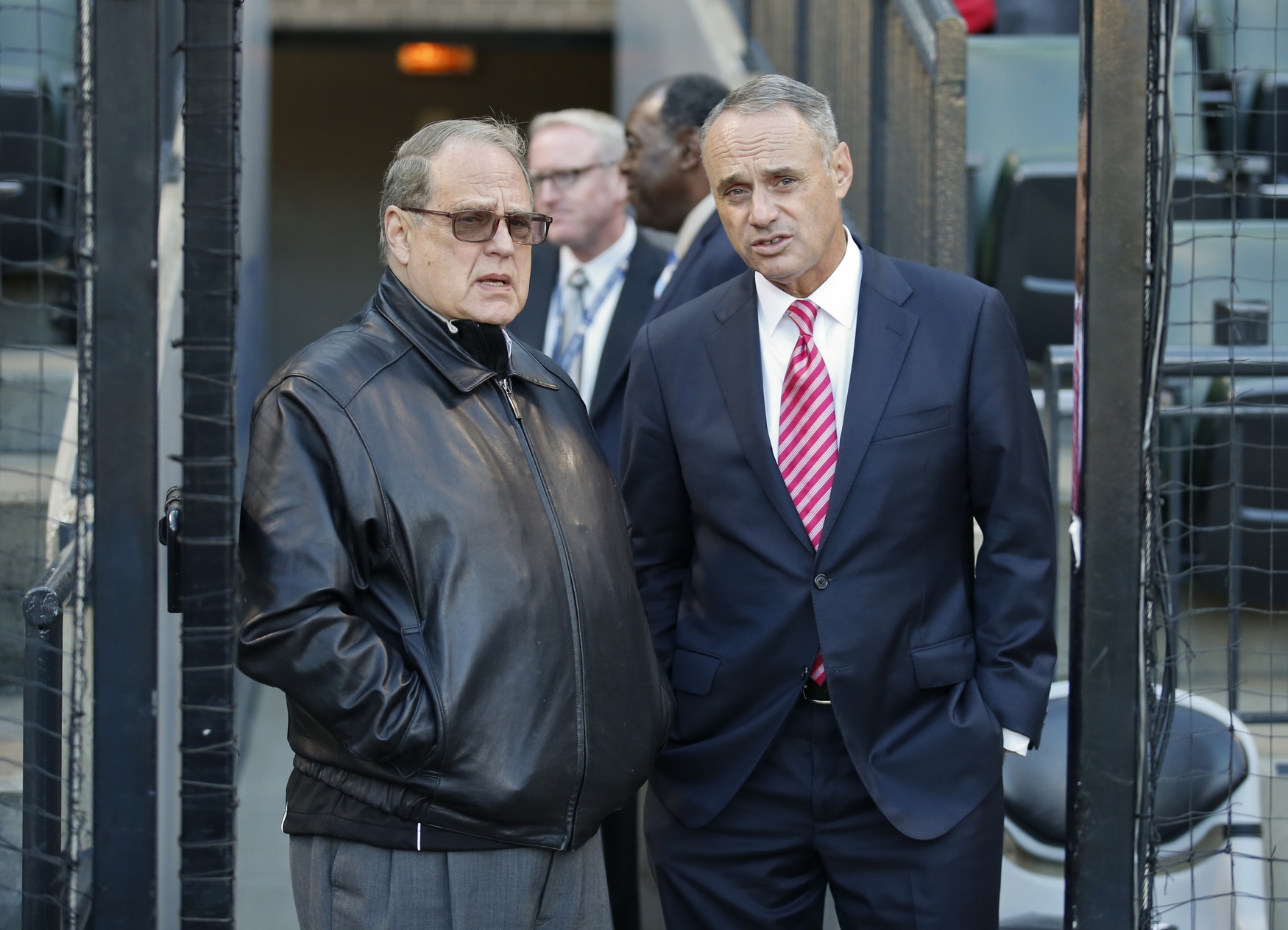The serene, blissful wait for the White Sox to sell off a homegrown future Hall of Famer to the highest bidder was rudely disturbed Tuesday night with news of labor strife possibly being afoot. Understandably unable to get on-the-record comment about the active negotiations for the new Collective Bargaining Agreement, FOX Sports’ Ken Rosenthal reported unnamed sources telling that owners are unhappy with the slow pace of negotiations as next Thursday’s deadline approaches.
Some commentary, from another nationally renowned reporter, to start.
A person who has been in the industry a long time predicted last week there would be the usual labor-talk saber-rattling this week. Bingo.
— Buster Olney (@Buster_ESPN) November 22, 2016
Rosenthal is a very savvy reporter, and it’s wise to assume that he is aware of the posturing that’s in place here, but these are the owners–likely leaning on the premise that the public still views any work stoppage as an act of greed by the players–publicly leaking that the players are moving too slowly. This an attempt to place pressure and responsbility on the players’ union, led by Tony Clark is his first go-round negotiating a CBA. Given the terms Rosenthal reports the owners are pushing, it’s clear why they are trying to field some outside assistance.
There are reported disagreements over the competitive balance tax, the Joint Drug Agreement, but the owners’ efforts to shoehorn in a full-blown international draft, particularly as a direct exchange for getting rid of draft pick loss for free agents that have received a qualifying is clearly the biggest wedge. It’s a huge move to curtail costs of the international market and that it’s been coming so long is one of the only things that hedges the absurdity of the proposal. International propsects would be entered into the hard slotting of the major league draft, likely pushed down from the top of the bonus scale by older, more pro-ready college players, and would likely have all the contract leverage of a senior sign.
The White Sox were hammered in the draft until hard spending caps were instituted, because they adhered to the soft ones, and were hammered in the international market until the current bonus pool restrictions were put in place. Even now, they will never rise from the middle of the pack in international talent acquisition because they refrain from the spending splurges that other teams engage in to violate bonus pool restriction, which put the signing of premium talent above adherence to league rules. With Jerry Reinsdorf having been at the heart of the 1994 strike, and a known advocate for regulating spending leaguewide, he’s seen as being a primary impetus for hard draft slotting, and by the same logic is believed to behind the push for an international draft, which he has been forecasting for a while.
While an international draft would benefit the White Sox in the way it would eliminate some of the avenues for competitive advantages that they currently neglect, it would be a mistake to think this is Reinsdorf trying to game the system to benefit his team. A better interpretation is that the Sox are currently being ran in the manner he feels the entire league should be molded to, whether it’s to their immediate benefit or not.
Fans cheering “team-friendly” contracts, or put in the position of hoping their team can fit talent within their own self-ascribed budget are already rooting for their team over the best financial interest of the players involved. But it’s getting more tiresome to make that choice on a league scale, where something driven by a desire to curb the revenue demanded by players at the most uncertain point in their careers could hand a small benefit to the White Sox way of doing business.
It’s a somewhat surprising turn of events that the players union, once derided for representing themselves–major leaguers already in the game–and being willing to concede the rights for incoming minor leaguers and draftees is now appearing to hold firm against an international draft, but it’s a good one. The draft is a mechanism for arbitrarily restricting revenue for young players, that itself goes against the free market principles that are supposed to be in place in this country; its expansion should be strongly opposed. If the owners are willing to force another reputation-smashing strike in order to pay 16-year-old Dominicans less money, they deserve the fallout it will receive.
Since the Winter Meetings are not until next month, after the CBA deadline, the major dominoes of the Sox rebuild were likely not to be until after negotations were wrapped anyway. My skepticism that the owners are willing to force a labor crisis over an international draft–hence their attempt to use public pressure to force an early concession–doubles as skepticism that the White Sox offseason will be thrown off track by this.
Lead Image Credit: Kamil Krzaczynski // USA Today Sports Images

Reinsdorf has always wanted to battle with the union. He is bitter about ’94 season and being able to break the union. Whenever there has been any major disagreement with MLBPA, Reinsdorf has been involved. He still believes the owners could win in any lock-out/strike scenario. He is also a miser. The reason Sox don’t go over slot on minor leaguers, is he doesn’t want too. Reinsdorf does not believe in investing in the draft. For years sox were one of the team’s that spent the least on drafting. Until, as you noted, draft hard cap was put into place.
I’ve made this statement before and I will say it again; until Reinsdorf and his ownership group are gone, Mediocrity will rein on the Southside.